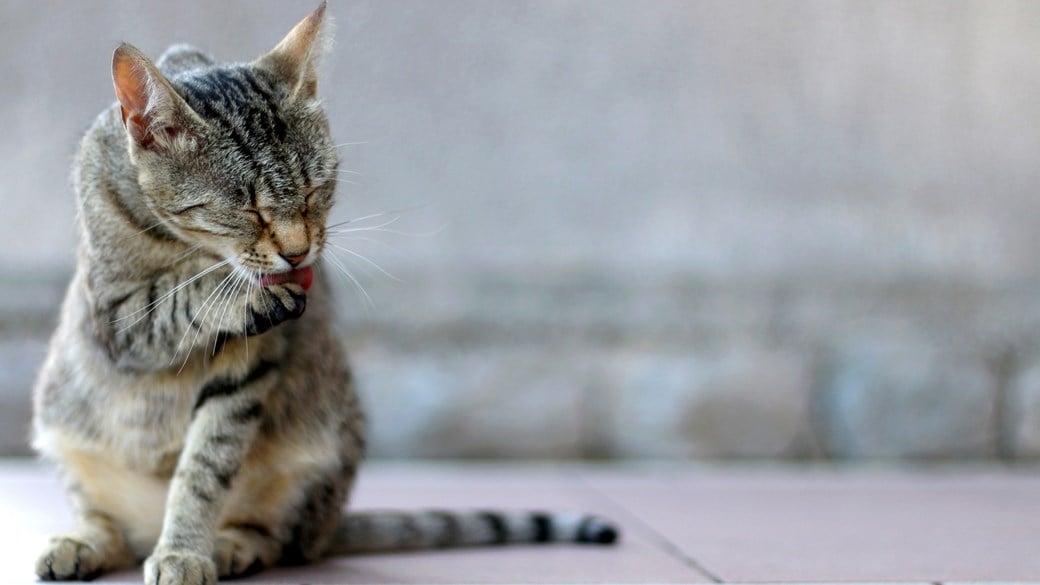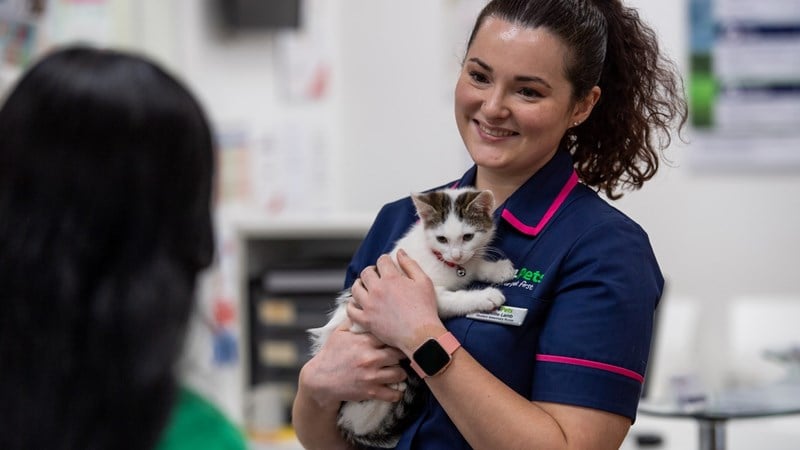
Permethrin Poisoning In Cats
Permethrin is a common ingredient in dog flea-control products. Sadly, permethrin is very toxic to cats and exposure can be fatal.
What is Permethrin?
Permethrin is a commonly used insecticide. It is man-made and based on a natural insecticide called pyrethrin, which is made from chrysanthemum flowers. Both pyrethrins and permethrin are toxic to cats. Permethrin is most commonly found in dog-only flea control spot-ons, as well as flea collars, shampoos and sprays. Permethrins are also toxic to fish.
If you are worried that your cat may have permethrin poisoning, contact your vet immediately.
More about permethrin poisoning in cats
A wide range of flea treatments for dogs contain permethrin, and these are often inexpensive, over-the-counter preparations, provided without veterinary advice. This means that people may accidentally use a dog product on their cat, or apply a dog flea product to a cat intentionally to avoid having to purchase multiple products, not realising the risk. Of the available products the spot-on products are the most dangerous, as these provide a very concentrated source of permethrin.
It should be noted some cat flea products do contain very low dose of permethrin. Although these give below the dangerous dose of permethrin, they increase the risk of toxicity from other exposure and are an unnecessary risk as many safer alternatives exist.
The list of products that contain permethrin is changeable, so always check the label of any flea product you purchase. At Vets4Pets we recommend that the easiest and safest way to provide flea protection for your pets is to purchase it from your vet.
Signs of permethrin toxicity usually develop rapidly, within a few hours of exposure, however it has been known in some cases for signs to take several days to occur. Common signs of permethrin poisoning in cats include:
- Twitching
- Muscle tremors
- Seizures (fits)
- High temperature
- Salivating
- Wide (dilated) pupils
If you see any of these signs in your cat, contact your vet immediately.
If you believe your cat has been exposed to permethrin through skin contact, it is important to remove as much as the permethrin from the skin as possible to prevent any further absorption. Thoroughly wash your cat with lukewarm water and mild soap – this may be difficult, but reducing exposure is vital as permethrin poisoning is so dangerous.
If your cat is already showing signs of permethrin poisoning, then this is an emergency and your cat needs to go to your local vet immediately. You may be asked to wash your cat before you bring them to the clinic – calling your vet will allow you to make the best plan based on estimated time since exposure, severity of signs and distance from the clinic.
If you cannot wash your cat for any reason, please taken them to your local veterinary clinic immediately who can do this for you.
You must also contact your vet even if your cat is not showing any signs of toxicity. They can advise you on if your cat needs to be seen for evaluation, and how to monitor your cat.
Yes. Sadly, if a cat rubs up against or grooms a dog that has had a permethrin spot-on applied, enough can be transferred to cause toxic, and potentially fatal, effect. Separating any cats from your dog for at least 72 hours after your dog has had a concentrated permethrin products applied is recommended.
Your vet will usually diagnose permethrin poisoning based on the clinical signs, or a known history of permethrin exposure.
If required, management starts with decontamination. Decontamination is done by washing your cat to remove any residual permethrin. This may have been done at home, but if appropriate your vet will do this at the clinic.
As cats with permethrin poisoning suffer from twitching, muscle tremors and fits, these must be controlled by pharmaceuticals. These pharmaceuticals may be in the form of muscle relaxant or anti-seizure medications, and sometimes sedation or general anaesthesia is required to support control. As well as these pharmaceuticals, in very severe cases, a lipid infusion may be given which may help remove permethrin from body tissues.
Your vet will also start supportive treatment for your cat, in the form of giving intravenous fluids (a drip), nursing care and temperature monitoring. Permethrin poisoning is very serious, and cats who survive can take several days of intense care to recover.
If you think your cat may have ingested antifreeze, please contact your local Vets4Pets immediately.
Health Plans to keep your cat healthy
At Vets4Pets we offer a range of Health Plans that make essential routine treatments more affordable. You'll save money on things like annual vaccinations, flea and worm treatment and routine health check-ups.

Cat Advice
Read more of our expert cat advice to keep your cat happy and healthy.
